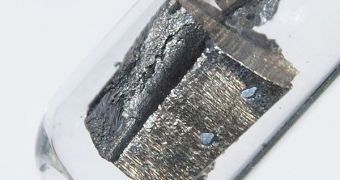Most of the world's complex equipment, including the vast majority of electronics, are constructed using rare Earth elements (REE), a collection of chemicals that is hard to come by. Now that China has a monopoly on harvesting and selling REE, the other countries are left to fend for themselves.
This is very worrying for the leaders of economies that rely heavily on advanced technologies, such as most European countries, Japan and the United States. Everything from headphone magnets and wind turbines to solar cells and computer displays is made using these elements.
As the world becomes more technologically advanced, more and more of these chemicals will be required to meet demands, but the problem is that most of the world now relies on China to meet these orders. And the Asian nation has already announced that it will reduce its exports.
Yesterday, October 10, researchers gathered at a meeting of the Geological Society of America, in Minneapolis, Minnesota, discussed the issues pertaining to REE security, and the implications of Chinese monopoly on both neodymium production and manufacturing technologies,
Colorado School of Mines economics professor Roderick Eggert joined top officials from the Congress and Senate, as well as representatives from the Office of the President of the US, and the US Geological Survey (USGS), to discuss these issues.
The experts determined that, while some REE are indeed extremely scarce (such as tellurium and rhenium), others are more common, but available only in difficult-to-reach places. For others still, extraction costs are simply too high.
There are only two possible ways in which this situation can unfold, the participants agreed – either the world reduces its REE consumption, or the methods used to extract these elements from other chemical deposits around the world are improved.
“China’s efforts to restrict exports of mineral commodities garnered the attention of Congress and highlighted the need for the United States to assess the state of the Nation’s mineral policies and examine opportunities to produce rare earths and other strategic and critical minerals domestically,” Kathleen Benedetto said.
She wrote the statement in an abstract for the meeting. The official is a member of the Subcommittee on Energy and Mineral Resources, of the Committee on Natural Resources in the US House of Representatives.
“Nine bills have been introduced in the House and Senate to address supply disruptions of rare earths and other important mineral commodities,” she added. “Deposits of rare earth elements and other critical minerals occur throughout the Nation,” USGS director Marcia McNutt said.
“The definition of ‘a critical mineral or material’ is extremely time dependent, as advances in materials science yield new products and the adoption of new technologies result in shifts in both supply and demand,” she concluded, quoted by Science Blog.

 14 DAY TRIAL //
14 DAY TRIAL //